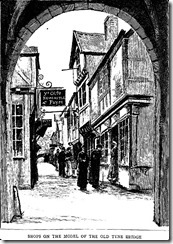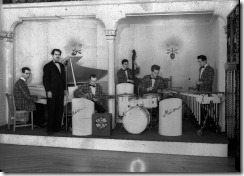‘Remove all remaining paper before reloading.’, it says here. It says so on the front of my printer. Being so literal minded, I find I don’t quite know what to do with this. Whilst it’s plainly something to do with the paper feed tray, the object so enlabelled, I cannot help but feel that it must apply to some greater referent.
All remaining paper? It would be such a huge undertaking even were I certain that it applied to me in particular. After all, I know I’m not the only one in the world with such a printer. I can’t even be certain that no other type of printer does not have a similar demand plasticly and blackly emblazoned upon it. Perhaps it’s intended for the first person who both feels moved to obey it and is capable of doing it? For it ought to be reasonably clear that once somebody has removed all remaining paper, whether or not they reload afterwards, that it will be no longer possible for anybody else to do so, except trivially. I mean, were I certain that someone had indeed done the necessary, and consequently that no scrap of paper remained, then I could feel easier about my inaction since my doing nothing would be all that’s necessary to remove all remaining paper.
But of course this will not do. I know I’m outcopping on the flaky rock of rationalisation. I know, and cannot unknow, that paper is produced more or less continuously in gloopy vats of sticky fibrous whiteness. And the sighing — nay moaning — of air dryers whispering with their hot sweet breath over the sheets of floppily freshformed laminas, well, it keeps me awake at night so it does. So much paper. And nearly all of it remaining. It’s just not possible for one person to remove it all. Then it hits me. The removal of remaining paper is intended as a communal activity. It’s obvious. Why did I not see this before? Why else would they mark everybody’s printer with such an exhortation? In the hope that just one of us might do something about it? Of course not. It isn’t cost-effective.
This realisation has hit me with the same dread certainty of one who discovers, when one is about seven years old, that one is supposed to join the cubs. Despite all the voices inside you which rage against it, despite all the cries, the protests, the echoes of which you can feel humming within your very teeth, you know that you must thrice dib and triply dob with all the rest of them.
They say a child has no conception of this kind of catharsis. They lie. They say it would not occur to a child to rail against such monstrosities, for it knows no better. They fib. They say a child will not question authority until it has seen its own betrayal enacted in its own parent’s humanity. They tell porkies. Children know. Adults forget — it screams for epithesis, scit infans, adultus obliviscetur.
But all of this Munchish, Baconian screamery is to no avail. We all give in in the end. We capitulate and eventually become our own internal scout, guide, soldier, wac, rear admiral, judge and Ian Drury all rôled into one. We see that everybody else is already at it. Why else would they be trying to eliminate all the trees in all the parks in all the world? Why the deliberate introduction of Dutch Elm disease? Why all this land clearance in the Americas and in Africa and in Malaysia? Why all this schlaßenbrennung? To get rid of the wood of course. To remove all possibility that any paper might remain.
Were it not such a desperate thought, that all the trees be doomed, one might easily be seduced, entranced, enraptured and bewitched by the scale of such a collective-unconscious-bogglingly grand concept. The organisation that must have gone into it. The marshalling of forces, the necessary indoctrination. In all that time it must have taken to educate entire populations for this task, imagine all the civilisations that must have fallen, risen, fallen again, like the heaving breast of some gigantic Cartlandish heroine finding herself under the spell of a still more corpulent Sir Jasper.
But we have forgotten, have we not, that all of this is merely means to an end. I feel it is up to those of us who know, who have remembered, to remind all these countless generations of actors, generals, cooks, thieves, wives and lovers, that after all of the remaining paper has been removed, we are expected to reload. There’s no point in it otherwise. We must warn everyone now, before it is too late. We rush collectively towards our own annihilation. It may not have occurred to anybody that perhaps it were wiser not to reload, that we don’t really have to remove any remaining paper, let alone all of it. We must fly, fly like the wind. We must feel the swish of hair in our mouths, the brush of furze and gorse against our bare ankles, the rivulets of sand between our toes. Will you join me in this noble task? Dare you refuse? I know you cannot.




